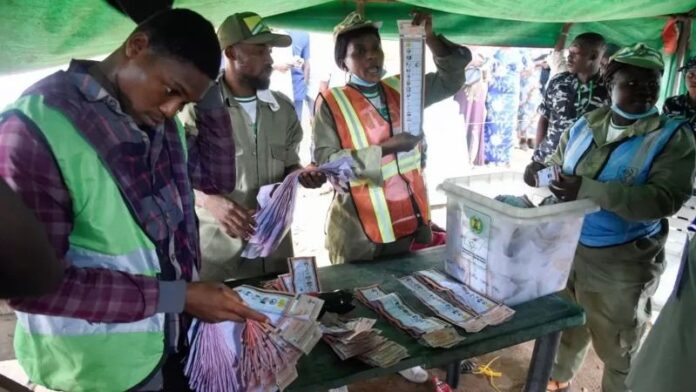The Centre for Transparency Advocacy (CTA) has urged stakeholders and the electorate to remain calm as INEC collated results of the Presidential and National Assembly elections.
Prof. Anthony Olusanya, a member of the Team of Experts for CTA, an election observer group, made the call in its preliminary statement on “The Observations of the conduct of the Presidential and National Assembly elections of Feb. 25.
Olusanya said that as the collation process and election in places where elections were rescheduled continued, all stakeholders should continue to conduct themselves in a peaceful and responsible manner.
He specifically called on INEC to hold itself to the highest level of neutrality and accountability.
Olusanya said the group’s preliminary findings from their field observers showed that INEC officials and materials generally did not arrive on time at the majority of polling units observed.
“Although INEC proposed commencement of accreditation was for 8.30 a.m., on the average, polling officials and materials did not arrive the polling units before 10.30 a.m.
“However, reports from our observers across 982 polling units so far reported across the country showed that INEC officials and materials arrived between 7a.m. and 8.30 a.m. in 53 per cent of the polling units.
“While security personnel were expected to be on ground before the commencement of the voting process, our observers noted that in most of the polling units, security personnel were not present until about 9 to 10 a.m.
“Generally, observers reported that the security personnel behaved and conducted themselves professionally.”
Olusanya also said that voter turnout was generally impressive, adding that in most cases, voters came out earlier than the arrival of INEC officials, materials and security personnel.
“They mostly conducted themselves peacefully and in accordance with voting guidelines.”
On the Bimodal Voter Accreditation System (BVAS), Olusanya said that in some cases, INEC ad hoc staff demonstrated insufficient familiarity with the operation of the BVAS.
“Observers reported that wrong codes and poor network were some of the challenges faced by the ad hoc staff.”
Similarly, Executive Director of CTA, Ms Faith Nwadishi commended INEC for creating special polling units for Persons With Disabilities (PWDs).
She said that on the whole, all stakeholders on the electoral value chain had put in their best to make sure that the country had free, fair and credible elections.
“However, the political parties and actors seem not to be taking a queue. You go to the field you see a party agent not wearing an INEC approved identity card.
“We commend Nigerians; a lot of them were out to vote even at centres where there was late arrival of INEC officials.
“This shows that the Nigerian voters now understand their role in our electoral history.”
Executive Director, Persons With Disabilities Action Network, Mr Ubaka Betram, recalled that before the commencement of the election, INEC had registered no fewer than 5,362 persons with disabilities.
He said that observers discovered that over 95 per cent of PWDs did not participate in the election.
Betram, however, called on governments and stakeholders to educate the populace against stigmatization of PWDs.


